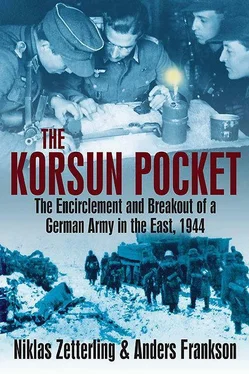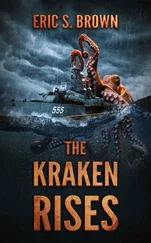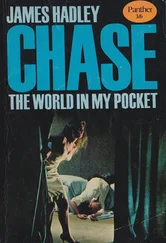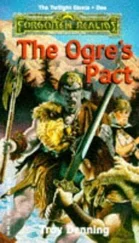The fate of the surrounded German forces hung in the balance, and had so far only been sustained by an insecure airlift operation, whose effectiveness was highly dependent on a small airfield near Korsun. Memories of the disaster that befell the German 6th Army at Stalingrad, almost exactly a year earlier, were very vivid to many of the Germans in the pocket. To Sapauschke, in the present situation, there seemed to be few realistic alternatives to receiving the parlayer. Sapauschke told Viebig that he would send an interpreter and then the small Soviet group would be brought to the staff of XXXXII Corps, of course with all due precautions to avoid revealing the location of the staff.
Blindfolded, the Russian group, headed by General M. I. Saveliev, was brought to XXXXII Corps staff, where they were taken into a small house. Sapauschke noted that the Soviet interpreter wore an unusual fur cap, leading him to believe that the man originated from the Caucasus area. At the beginning of the war the Red Army had been dominated by men from Russia, but vast casualties had increased the share of men from other parts of the Soviet Union. The Germans had also been forced to recruit in new areas, to remedy the shortages of manpower caused by the years of hard fighting that had passed.
General Saveliev opened the discussion by complaining that he had been fired upon when approaching the German positions, despite carrying a distinctive white flag. Sapauschke was convinced this was only a trick to get a better starting position for the negotiations, thus he said that the error must have been caused by the unfavorable direction of the wind, causing the flag to be difficult to see.
Saveliev asked to be introduced to the commanders of the two surrounded German corps, generals Wilhelm Stemmermann and Theobald Lieb. When this was turned down, Saveliev wanted to know who Sapauschke was. The latter replied that he was chief of staff of the German unit Saveliev had approached. Saveliev remained undaunted and handed over two letters, one each for Stemmermann and Lieb.
It was clear that Sapauschke had to get into contact with the two corps commanders, and the small Soviet delegation was brought outside the small farmer’s hut. Sapauschke soon made contact with Lieb and gave him a brief description of what had taken place, whereupon Lieb asked Sapauschke to open the letters and read them. Their content was clear enough and did not contain any major surprise. The Soviets asked that a German officer with the necessary authority come into their lines before 10.00 next day to sign terms of surrender. Thus the German force would be spared the fate of their comrades at Stalingrad. All German officers would be allowed to retain their sidearms and every German soldier who according to this agreement went into captivity would be allowed to go to any country they wished when the war was over. The letters were signed by three of the most well-known Soviet officers, Zhukov, Konev and Vatutin.
Sapauschke proposed that they should pretend to accept the proposal. German panzer divisions attacking from outside the pocket were getting closer to the two surrounded corps. Possibly time could be won by provisionally accepting the terms but demanding some alterations. Lieb turned this down, since he believed that it was both a dangerous gambit and unlikely to succeed. There was to be no surrender, but the Russian officer would not be told so bluntly.
For a second time the Soviet delegation entered the small hut. Without much sign of reaction they listened to Sapauschke tell them that Lieb and Stemmermann had been informed of the content of the letters and would reply at a moment they found appropriate. Saveliev was hardly surprised. The Germans rarely surrendered. At Stalingrad they had refused to capitulate for months, until finally succumbing to starvation, disease, and Soviet attacks that had begun to shatter their cauldron. Neither he nor the high ranking officers who had signed the letters could have had any illusions about the Germans’ willingness to surrender. As he probably had an exaggerated picture of the strength of the two surrounded German corps, he realized that more hard fighting was to be expected over the following days or perhaps weeks.
The subject was exhausted, but Sapauschke wanted to combine hospitality with his desire to convey the impression that the surrounded Germans were relatively well off. He asked the Soviet general if he would like to have some French Cognac. Without hesitation Saveliev accepted. Sapauschke did not have any wine or cognac glasses, but he had some tooth brushing glasses, which he filled to the edge. Sapauschke raised and proposed a toast to General Saveliev. The Soviet officer certainly did not decline. They emptied their glasses and Saveliev asked if he could have a second filling.
For a moment Sapauschke considered trying to give the Russian general so much to drink that he would unintentionally disclose some valuable information. However, since it would be impossible to validate his words, the German dropped the idea. When the glasses were empty the two officers shook hands and the Soviet delegation departed the same way it had arrived.
The battle at Korsun would continue.
CHAPTER 1
Background: The War in the East
When Adolf Hitler launched Operation Barbarossa, the assault on the Soviet Union, on 22 June 1941, he expected swift success. Initially, his hopes appeared to be justified. The German armies rapidly drove deep into Soviet territory and captured hundreds of thousands of Red Army soldiers as they advanced. However, in August, Soviet resistance increased, while German logistical difficulties mounted with the increasing distances. Nevertheless, the German high command remained optimistic. Late in August, German army groups Center and South carried out a double envelopment of the Soviet armies in the Kiev area, which resulted in the capture of 665,000 Soviet soldiers. It was a major success and was followed by yet another huge encirclement operation.
At the beginning of October, Army Group Center launched Operation Typhoon, the assault on Moscow. Immediately, the German armored spearheads broke through the Soviet defenses west of Vyazma and Bryansk. The German pincers closed behind the Soviet defenses, which resulted in perhaps the greatest losses ever inflicted upon an enemy. The Germans reported the capture of 673,000 prisoners, but time was running out. About a week into October, fall rains turned the ground into a morass, allowing the Red Army time to move reinforcements to the shattered front west of Moscow. The Germans made yet another attempt to capture the Soviet capital, but it petered out early in December. Instead, Stalin launched a counteroffensive that drove the Germans away from the gates of Moscow.
With the failure to knock the Soviet Union out of the war in 1941, Hitler doomed his country to a prolonged war, in which the weight of industrial and demographical resources would ultimately decide the outcome. The war in the East proved to be horrendously costly and characterized by unparalleled brutality, in particular against the civilian population and prisoners of war. From the outset Hitler had decided that the war would be a war of extermination, a challenge the Soviets took up in kind, and the result was appalling.

With hindsight, it seems clear that if Hitler had any chance of defeating the Soviet Union, he had forfeited that chance by December 1941. At the time, though, as the German armies halted the Soviet winter offensive, Hitler was poised to launch a major offensive in the summer of 1942. However, this time his resources did not suffice to attack along the entire front, as had been the case in 1941. Rather, his efforts were directed towards the oil fields in the Caucasus and towards Stalingrad. Neither of these aims was fully achieved, and in November 1942 the Red Army launched a counteroffensive that cut off the German 6th Army at Stalingrad. This success was subsequently regarded as a turning point in the war, but in fact it is probable that the balance had already shifted in Soviet favor.
Читать дальше













